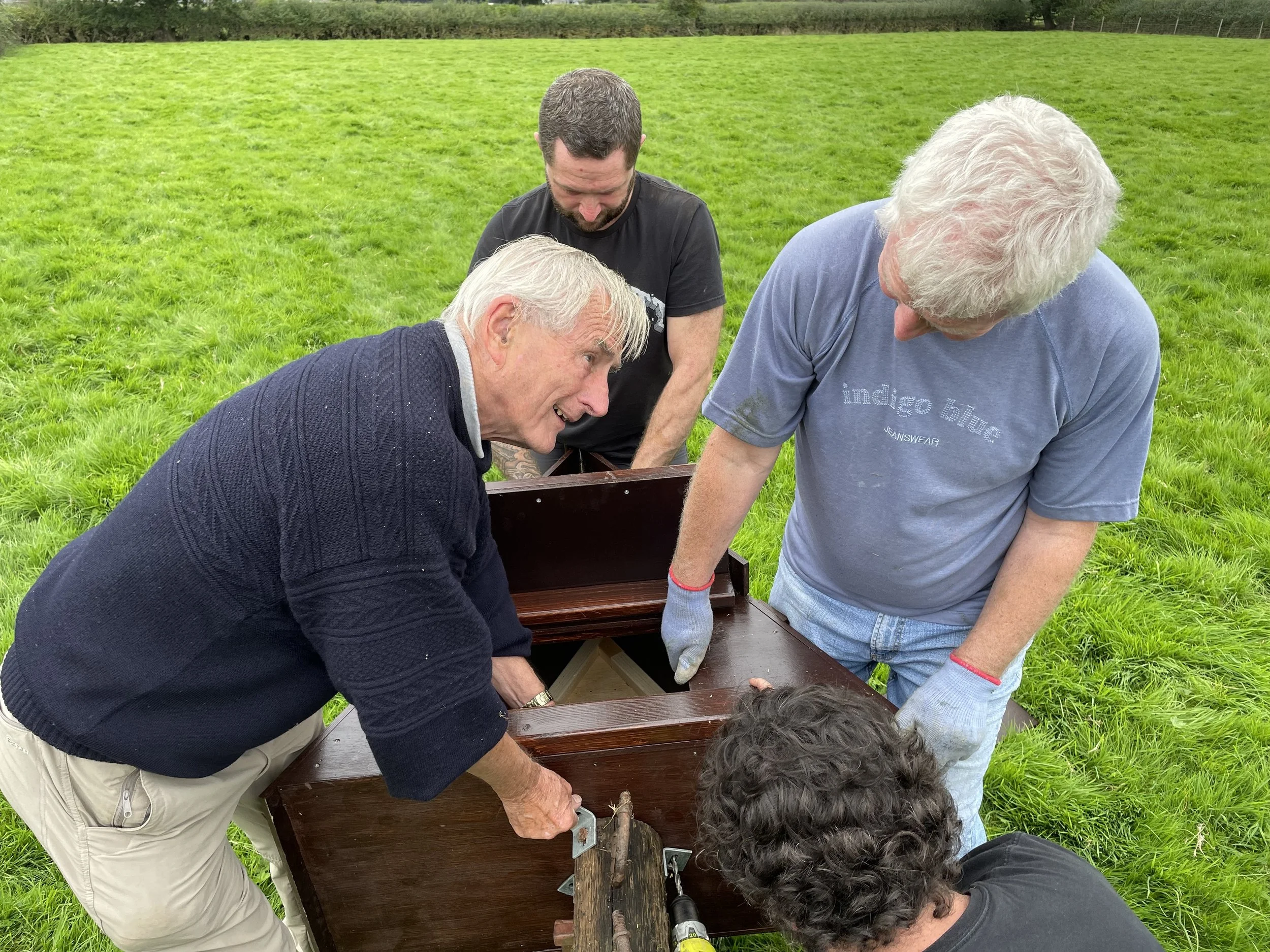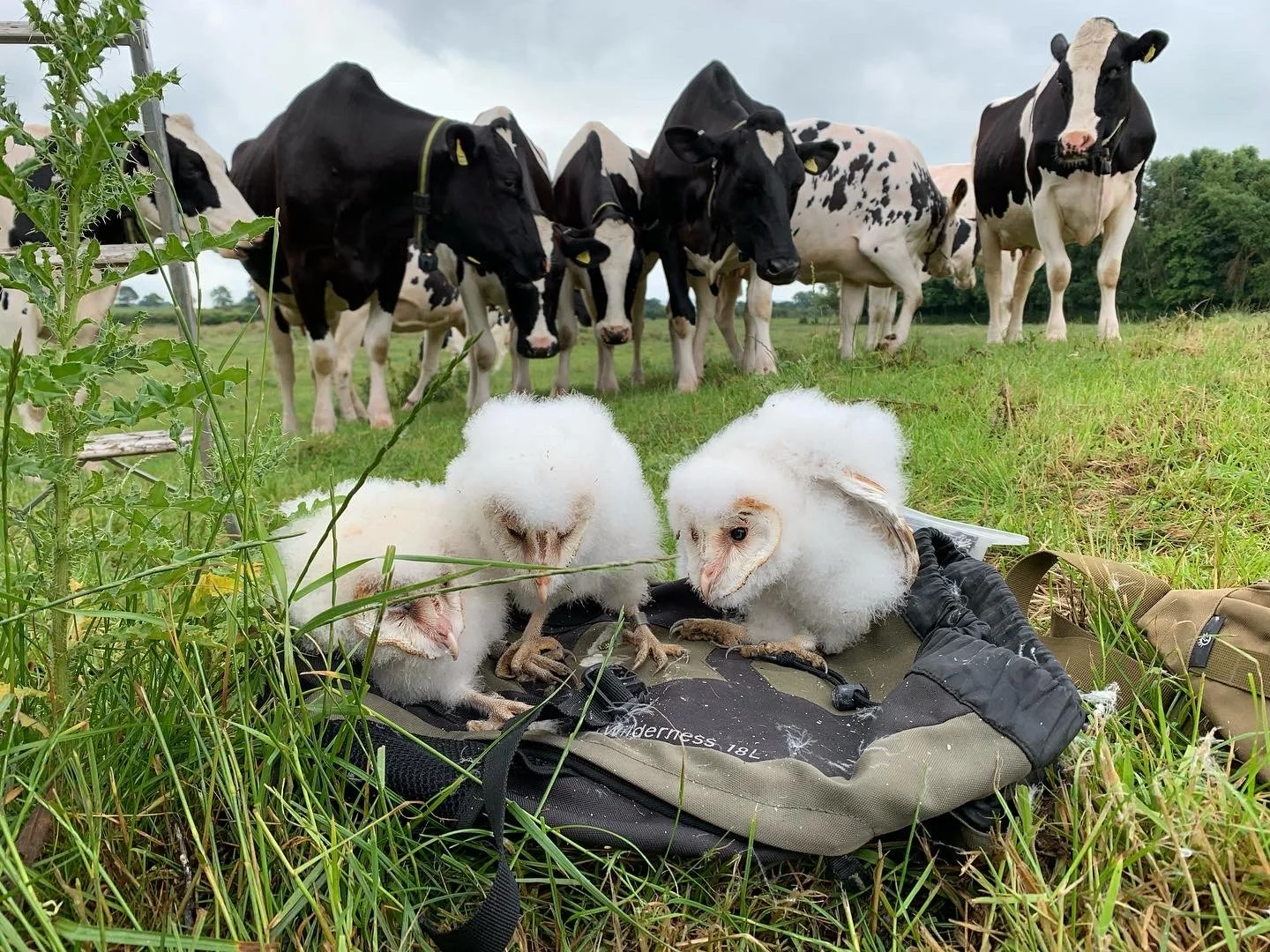How We Work
Our work is in three main areas.
The first is putting up nest boxes. This is where we rely on farmers or the general public to let us know where Barn Owls have been regularly seen or where they have nested in a tree, barn or building. If owls are seen regularly in an area, we may well put up a box which will not only provide an alternative nest site but also provide shelter for roosting owls, particularly in the winter months and when the young have fledged.
Alternatively, you may request and purchase* a nest box from the group. We will carry out a site visit** and survey areas which might be suitable for a pair of Barn Owls to establish a territory. For these owls to be successful they must have a suitable feeding habitat. In the past, this was often provided in a farmyard where rodents fed on spilled grain and suitable nest sites were available in barns and outbuildings. Recently many barns have been converted to accommodation and grain spillage is a thing of the past. Nowadays the main source of food is the short-tailed field vole which lives in rough grassland. It should be emphasised that most of Cheshire's farmland is unsuitable for Barn Owls as it consists of fields which are either heavily grazed or silaged at regular intervals or both.
Nevertheless, there are, tucked away in most parishes, areas full of clumps of long grass where the voles can breed and the owls can find suitable prey.
Suitable boxes are made for us and erected in a suitable spot. In the past, most boxes were placed on top of a used telegraph pole cut in half but more recently we have switched to fitting boxes in a nearby suitable tree.
We carry the boxes and equipment to the sites using a trailer bought with a lottery grant. To date, we have installed over 500 nest boxes in West Cheshire. In a good year, about 15% of our boxes are occupied by breeding Barn Owls. Owls also use the boxes for roosting and shelter which is very important as Barn Owls can struggle in wet and cold weather. We also have several pairs of kestrels plus jackdaws, squirrels and other wildlife using the boxes. If you know of nest sites which are now under threat of redevelopment or destruction please let us know via the contact page.
Another main area of work is monitoring and ringing. Every year we visit all** our boxes and any known tree sites where we ring, weigh and measure any young or adult birds that we find. The main purpose of ringing is to find out as much as we can about the number of young birds that live to breed successfully, how far they move etc. It is also an opportunity for the landowner/farmer who has made the effort to support this species on their land to see their hard work pay off. You can find out more about ringing here.
Our final area of work is outreach and education**. As mentioned in the 'About Us' several members of the group have been carrying out talks with local groups and schools for many years. The group have in the past also attended countryside days, ploughing matches and other events with our display stand to enthuse and educate people about Barn owls in Cheshire. You can also find out more about the work we do in the field by visiting our social media channels.
*We know our boxes work and are well made and safe for owls, however, if you have bought or wish to buy a Barn Owl box from elsewhere we are still happy to help you and include it in our database if you fall within our area. You can also contact us to ask our opinion on nest boxes if you are considering buying from elsewhere.
**Please bear in mind the group consists purely of volunteers. Whilst we will endeavour to fulfil any requests for site visits, nest box erection or outreach/educational visits this depends solely on volunteer availability.




